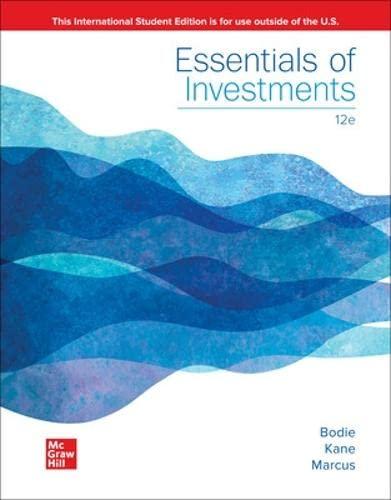Neighborhood Insurance sells fire insurance policies to local homeowners. The premium is $110, the probability of a
Question:
Neighborhood Insurance sells fire insurance policies to local homeowners. The premium is $110, the probability of a fire is .001, and in the event of a fire, the insured damages (the payout on the policy) will be $100,000.
a. Make a table of the two possible payouts on each policy with the probability of each.
b. Suppose you own the entire firm, and the company issues only one policy. What are the expected value and variance of your profit?
c. Now suppose your company issues two policies. The risk of fire is independent across the two policies. Make a table of the three possible payouts along with their associated probabilities.
d. What are the expected value and variance of your profit?
e. Compare your answers to (b) and (d). Did risk pooling increase or decrease the variance of your profit?
f. Continue to assume the company has issued two policies, but now assume you take on a partner, so that you each own one-half of the firm. Make a table of your share of the possible payouts the company may have to make on the two policies, along with their associated probabilities.
g. What are the expected value and variance of your profit?
h. Compare your answers to (b) and (g). What has happened to your risk? What about your expected profit?
i. Comparing the answers to (e) and (h), what do you conclude about risk sharing versus risk pooling?
Step by Step Answer:

ISE Essentials Of Investments
ISBN: 9781265450090
12th International Edition
Authors: Zvi Bodie, Alex Kane, Alan Marcus





